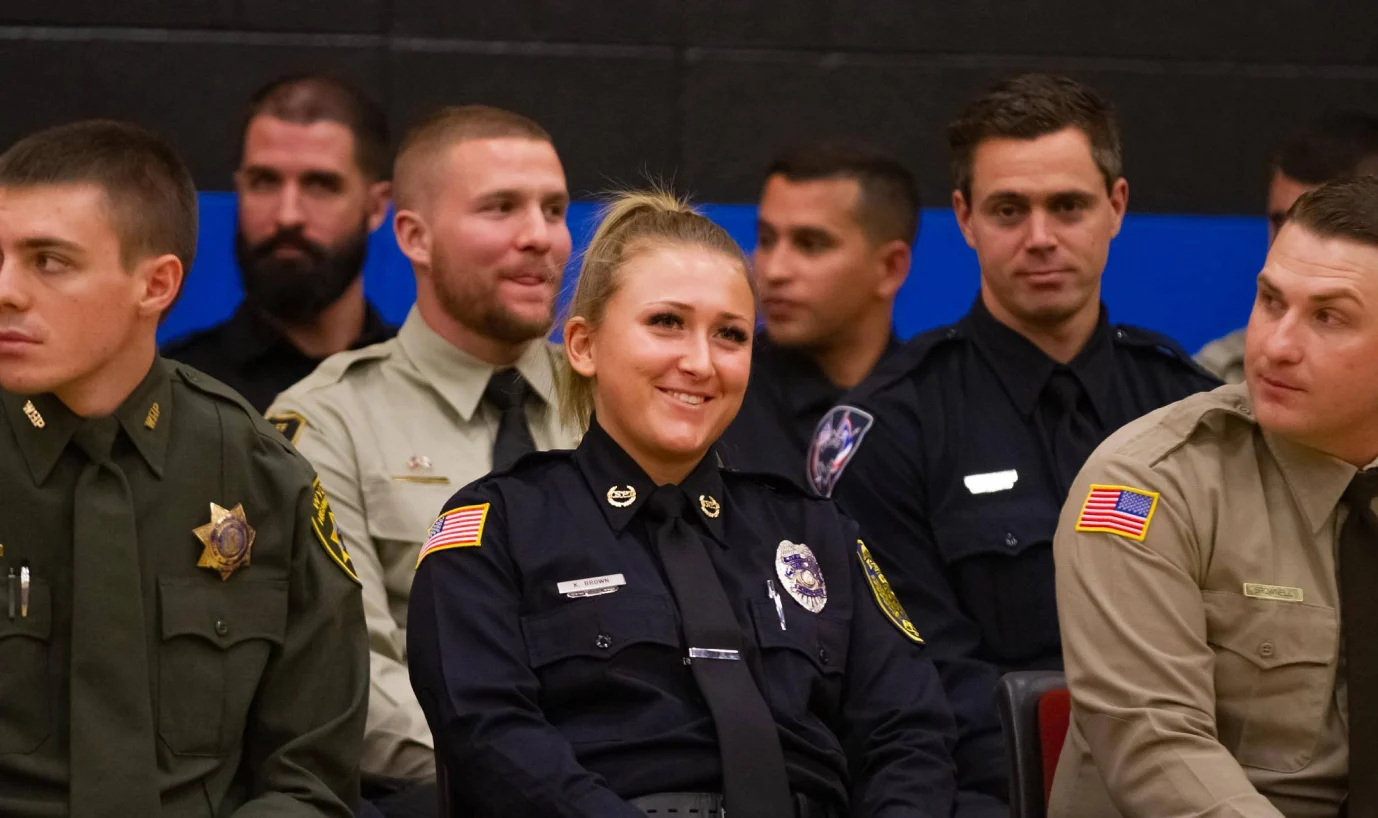At the Wyoming Law Enforcement Academy (WLEA), training the next generation of officers means preparing them for the complex, high-pressure realities of the job—not just helping them pass exams. That commitment to real-world readiness led the Academy to rethink every aspect of its foundational Peace Officer Basic Course, from instructional design to the learning management system (LMS) it relied on to deliver content and track progress.
The Challenge
Preparing Officers for the Practical Reality of the Job
WLEA recognized that its traditional, lecture-based model wasn’t keeping pace with the demands of modern policing—or with evolving expectations around how adults learn best. The Academy needed to move beyond passive instruction and build a training experience that prioritized problem solving, critical thinking, and long-term retention.
We wanted to create more than just better test takers. We wanted more confident, capable officers who can think on their feet in high-stakes situations.
Kevin Acosta, Learning Experience Designer, Wyoming Law Enforcement Academy
At the same time, the LMS in place—Canvas by Instructure—wasn’t meeting their instructional or operational needs as they sought to overhaul and modernize their training model. It lacked the flexibility and data visibility required to support an outcomes-based, performance-focused model.
When I first started at the Academy, we were using Canvas by Instructure, but it didn’t meet the requirements we had in mind. We couldn’t track student progress well or deliver content at the level we wanted to. So, we looked at Moodle and Blackboard, and found Blackboard was the only one that checked the boxes. And when we decided to move to Blackboard, we saw right now that Anthology was extremely knowledgeable when it came to navigating the bureaucracies of state government contracts and it reassured us that we’d made the right decision.
Jesse Curtis, Deputy Director, Wyoming Law Enforcement Academy
The Solution
Redesigning Training with a Flexible and Innovative LMS
WLEA redesigned its Peace Officer Basic Course using Blackboard® to support a blended learning model that combines online and in-person instruction across three key phases: learning, application, and integration. This structure allows students to absorb concepts, apply them in context, and reinforce skills over time.
At the core of the redesign is a shift in mindset. Students aren’t just memorizing facts—they’re learning to think like officers from day one. The curriculum is mapped to five core law enforcement competencies: criminal law, interpersonal interactions, professional skills, operational skills, and investigative skills. Each online module starts with a pretest to activate prior knowledge, then moves into problem-based content supported by videos, case studies, and interactive exercises. Self assessments track both competence and confidence along the way.

Blackboard gives us the flexibility to be problem centric. It has tools that allow us to have a semi-asynchronous environment. We can still control the students’ path to a degree, but we can allow some freedom in that—and that was fairly unique amongst the LMS systems.
Jesse Curtis, Deputy Director, Wyoming Law Enforcement Academy
And the learning doesn’t stop online. Each digital module connects directly to in-person simulations, role-playing activities, and live evaluations—ensuring that knowledge is reinforced through real-world practice.
The shift to Blackboard and a problem-centric instructional model has had a measurable impact on student outcomes—and on how the Academy operates.
Insights Delivered
Less Time to Better Outcomes
WLEA reported a 10% increase in knowledge retention and a 78% reduction in time spent on tasks to achieve core learning objectives. Students demonstrated stronger critical thinking and decision-making skills earlier in the training process, allowing instructors to spend more time on advanced skill development and applied scenarios. Blackboard’s robust tracking and assessment tools also gave the team clearer insight into what was working—and where to adapt in real time.
When we went to Blackboard as our LMS, what we saw was increased student performance and an extreme decrease in the time on task to produce those student outcomes. This allowed us to take that time and apply it in novel ways.
Jesse Curtis, Deputy Director, Wyoming Law Enforcement Academy
The result is a more agile, outcomes-driven training program—one that not only meets today’s expectations for law enforcement education, but sets a high bar for what’s possible when technology and pedagogy are fully aligned.
Looking Ahead
WLEA’s move to Blackboard wasn’t just about adopting a new platform—it was about rethinking what effective law enforcement training should look like. The results are already clear: more engaged students, stronger performance, and faster time to competency.
As the Academy continues to explore adaptive content, simulation-based learning, and data-informed instruction, its mission remains the same: to prepare officers who are not only knowledgeable, but equipped to make smart decisions under pressure—and to lead with confidence from day one.
Epilogue
Anthology would like to thank Jesse Curtis, Kevin Acosta, and the entire team at Wyoming Law Enforcement Academy for their dedication to redefining public safety training. As highlighted in their winning 2025 Catalyst Award submission, their commitment to innovation, data-informed instruction, and real-world readiness is setting a new standard in law enforcement education—and we’re proud to support their continued impact, one student at a time.
Ready to modernize training at your agency? Discover everything Blackboard has to offer today.
